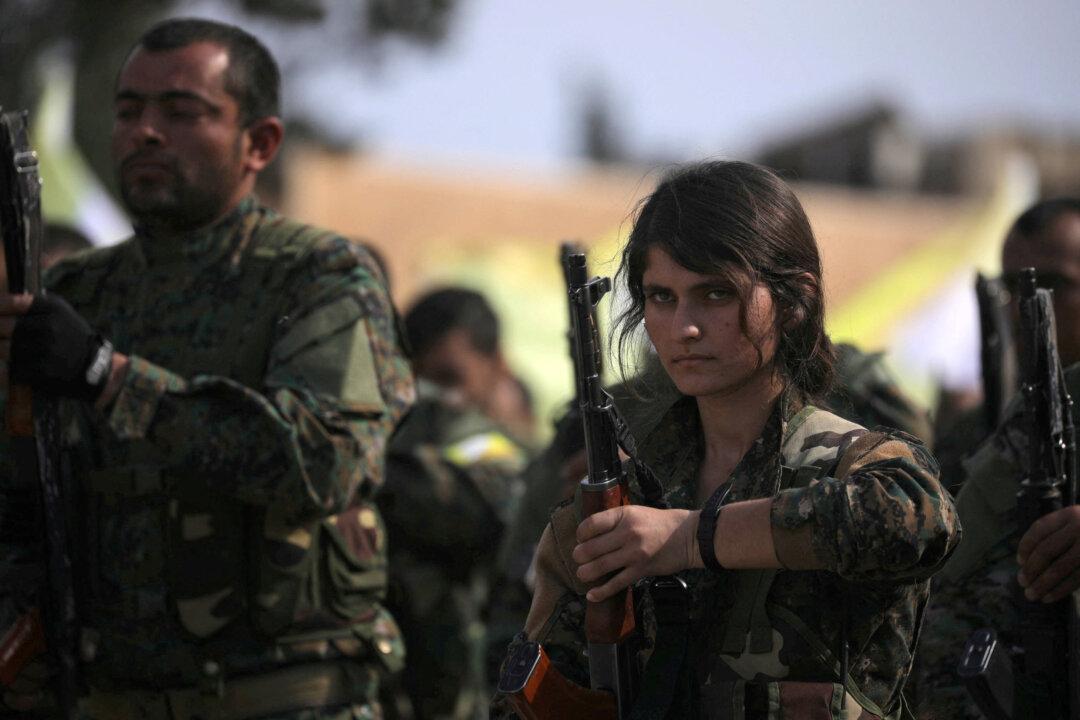QAMISHLI, Syria—The Syrian Democratic Forces (SDF), a U.S.-backed group that helped defeat ISIS terrorists in Syria, said on Friday it had stopped all joint counter-terrorism operations with the United States and other allies as a result of Turkish bombardment on its area of control.
The move was confirmed by the U.S. military, which said in a statement that U.S. forces in the region had “paused all partnered operations” against the ISIS terrorist group in Syria.





